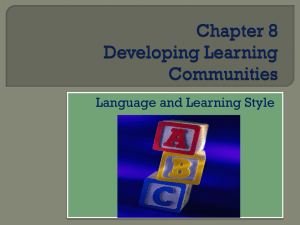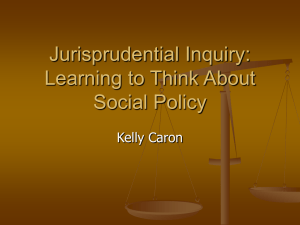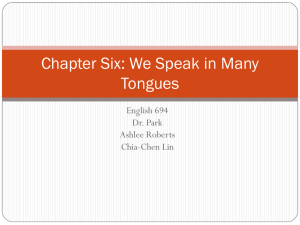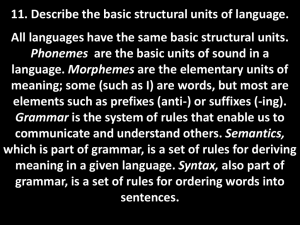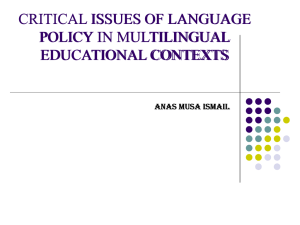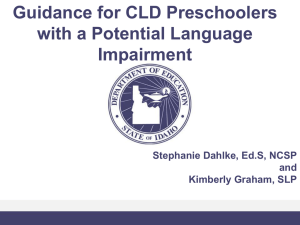Educating English Language Learners James Crawford
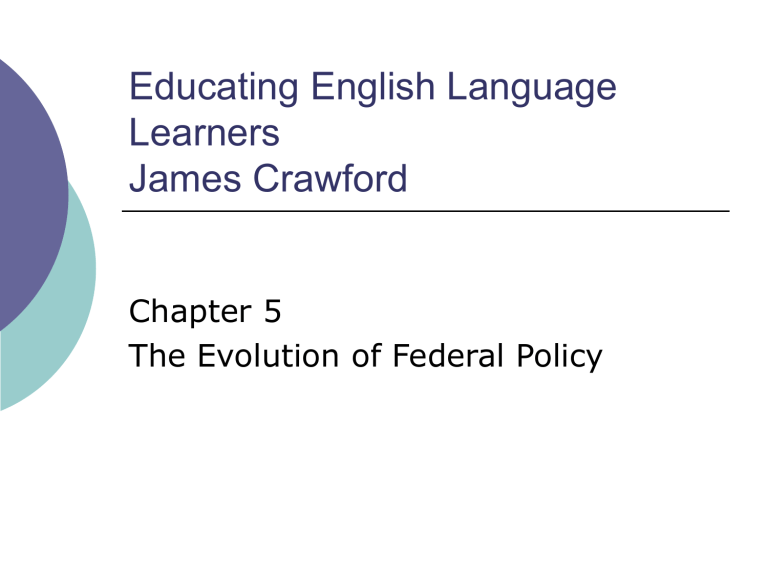
Educating English Language
Learners
James Crawford
Chapter 5
The Evolution of Federal Policy
Untangling the Lines of Authority
1998 Proposition 227 took effect
San Francisco and San Jose continue to provide bilingual education- Federal authority trumps state/local
Arguments raised when seeking overturn of
Proposition 227 – If bilingual education is required to safeguard civil rights of ELL in those districts, why not all ELL? (page 106)
Generally US left responsibility of schools to state and local governments before 1960’s
National Defense Education Act
Civil Rights Acts
Elementary and Secondary Education Act of 1965
Genesis of Title VII
Bilingual Education Act
Law focus was aimed at children that were both poor and lacked the ability to speak
English
Support was extended to all children who came from backgrounds were English was not the home language
1960’s increased attention for Spanish speaking Americans
Pg 108 Birth of Bilingual Movement
Federal Funding for programs
Late 1960s States start passing laws authorizing instruction in languages other than
English
Simple Justice
1970’s Federal policy is largely in response to civil rights activism
Equal treatment for ELL meant unequal opportunities to succeed
De facto and De jure segregation
Civil Rigthts Act Title VI
Serna v. Portales Municipal Scools – first court mandate for bilingual education
Lau Decision
California begins in 1970
“These Chinease Children were being denied ‘education on equal terms’.
Supreme Court rules in 1974
Office of Civil Rigths visits schools to see if schools are complying
Lau Remedies
Contradictions of Title VII
1973-1974 Adjustments are made to BEA
Transition and Maintence
“ultimate goal of bilingual education is a student who functions well in two language in any occasion” page 115
By mid 1970’s backlash and critics
American Institutes for Research – 1977-
1978 First large scale evaluation of bilingual education showed that researchers could find no evidence for overall effectiveness of bilingual education.
Segregation Question
Some Hispanic leaders feared that bilingual tracks might in fact lead to de facto segregation
Alfredo Mathew quote – “Bilingual programs remain open to the possibility of involving blacks and whites …”
Where bilingual programs keeping schools segregated?
More amendments to BEA in 1978-
Native language would be used ONLY “to the extent necessary to achieve competence of
English Language
Students eligible were all children of limited
English proficiency
Office of Civil Rights
OCR monitored schools
Lau Remedies
Lau Regulations- 1980 Carter
Reaction was negative
Congress blocks rules
Content Based ESL
Regan Statement on Bilingual Education
120
Legislative Fallout
Regan administration looks at effectiveness of program failure to prove superiority of bilingual education
Alternates such as Fairfax ESL model, Structured immersion
1983 Reauthorization of BEA
1984 Reagan praises “effective bilingual programs”
Special Alternative Instructional
Programs
OCR Retreat
Civil rights enforcement became more difficult
(mid 1980s)
“Case by Case” basis
Decisions of services were being left to the school
OCR no longer had as much “power” as long as schools could claim to be serving LEP children in some fashion. 124
Basically in the 80’s OCR lost its power when reviewing cases and making sure schools were upholding Lau.
In the Clinton era new OCR head Norma Cantu tried to become more visible but not much support interest from Clinton Administration
Casta ñeda Standard
Equal Educational Opportunities Act of
1974
Castañeda v. Pickard requires school districts to “take appropriate action to overcome language barriers that impede equal participation by it’s students in its instructional programs.”
Distrticts and States were held to the
Castaneda 3 Criteria (standard)
It must be based on a sound educational theory
It must be implemented effectively with adequate resources and personnel
After a trail period it must be evaluated as effective in overcoming language handicaps

